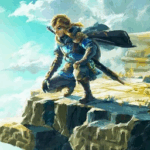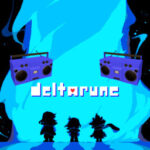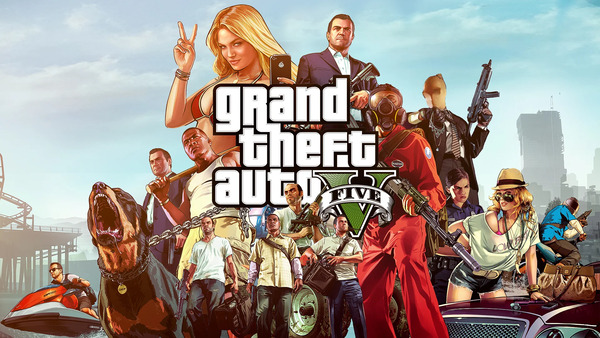Advertisement
Popular Now
Red Dead Redemption 2, developed by Rockstar Games and released in 2018, captivates players with its intricate narrative, stunning open world, and deeply immersive gameplay. One of the game’s most compelling aspects is its exploration of moral choices and their consequences. Players navigate a morally ambiguous landscape, making decisions that impact the protagonist, Arthur Morgan, and the members of the Van der Linde gang.
This article examines the moral complexities present in Red Dead Redemption 2, focusing on how choices affect character development, relationships, and the overall narrative experience. By analyzing key moments, we uncover how player decisions shape the story and highlight the tension between morality and survival.
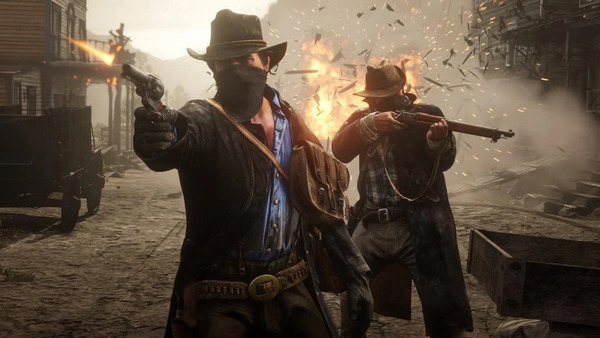 Set in 1899, Red Dead Redemption 2 portrays the decline of the American Old West[/caption]
The setting plays a vital role in the moral choices characters face. The lawlessness of the Wild West forces characters to make tough decisions to survive. The tension between maintaining their outlaw lifestyle and adapting to the changing world drives players to consider the implications of their actions.
Set in 1899, Red Dead Redemption 2 portrays the decline of the American Old West[/caption]
The setting plays a vital role in the moral choices characters face. The lawlessness of the Wild West forces characters to make tough decisions to survive. The tension between maintaining their outlaw lifestyle and adapting to the changing world drives players to consider the implications of their actions.
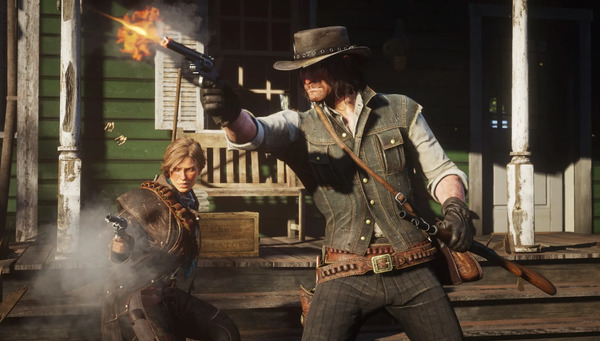 The conflict between Arthur and Micah culminates in a dramatic showdown that captures the moral tensions throughout the game[/caption]
Arthur's relationship with Dutch evolves throughout the narrative, showcasing the tension between loyalty and the realization that Dutch's ideals have become dangerously misguided. Players face the difficult choice of whether to support Dutch’s behavior or to challenge his authority.
The conflict between Arthur and Micah culminates in a dramatic showdown that captures the moral tensions throughout the game[/caption]
Arthur's relationship with Dutch evolves throughout the narrative, showcasing the tension between loyalty and the realization that Dutch's ideals have become dangerously misguided. Players face the difficult choice of whether to support Dutch’s behavior or to challenge his authority.
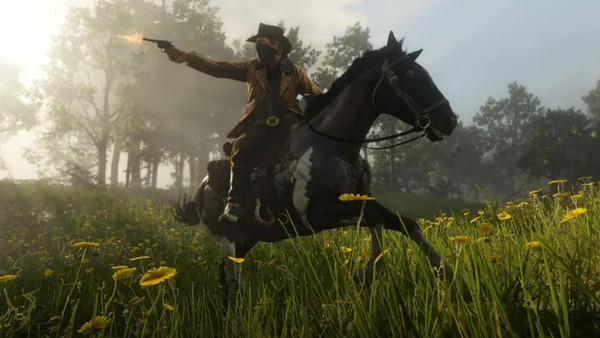 Red Dead Redemption 2 masterfully explores the moral complexities of choice, weaving a rich narrative that challenges players[/caption]
Red Dead Redemption 2 masterfully explores the moral complexities of choice, weaving a rich narrative that challenges players[/caption]
The Setting: A World on the Brink of Change
Set in 1899, Red Dead Redemption 2 portrays the decline of the American Old West. This period is characterized by the rise of industrialization, which serves as a backdrop for the game's narrative. The Van der Linde gang, led by Dutch Van der Linde, embodies rebellion against the forces of civilization. However, as law enforcement and rival factions close in, they must confront their own moral dilemmas. [caption id="attachment_1662" align="aligncenter" width="600"] Set in 1899, Red Dead Redemption 2 portrays the decline of the American Old West[/caption]
The setting plays a vital role in the moral choices characters face. The lawlessness of the Wild West forces characters to make tough decisions to survive. The tension between maintaining their outlaw lifestyle and adapting to the changing world drives players to consider the implications of their actions.
Set in 1899, Red Dead Redemption 2 portrays the decline of the American Old West[/caption]
The setting plays a vital role in the moral choices characters face. The lawlessness of the Wild West forces characters to make tough decisions to survive. The tension between maintaining their outlaw lifestyle and adapting to the changing world drives players to consider the implications of their actions.
Arthur Morgan: A Protagonist of Moral Conflict
Arthur Morgan, the game's protagonist, presents a complex character whose journey reflects the moral complexities in Red Dead Redemption 2. As an enforcer for the Van der Linde gang, Arthur lives a life of crime but also displays deep empathy. He struggles between loyalty to the gang and his desire to do what is right. Arthur’s internal conflict intensifies through his interactions with other characters, particularly John Marston, the protagonist of the original Red Dead Redemption. Their relationship allows players to explore themes of redemption and sacrifice. As the story unfolds, Arthur’s choices reflect his quest for redemption, leading him to challenge his initial beliefs.Choices and Consequences: A Gameplay Mechanic
Red Dead Redemption 2 ties gameplay to the moral choices players make. The game features a morality system that influences Arthur's honor level, affecting how characters perceive him and the outcomes of certain events. Players can engage in honorable or dishonorable actions, each with different consequences.- Honorable Actions: Helping strangers, sparing lives, and upholding loyalty can enhance Arthur's honor level. Higher honor levels often lead to positive outcomes, like improved relationships with gang members and a more favorable ending.
- Dishonorable Actions: Committing crimes and harming innocents results in a lower honor level. This can lead to increased hostility from law enforcement and strained relationships within the gang.
The Influence of the Gang: A Community of Moral Ambiguity
The Van der Linde gang represents moral ambiguity in Red Dead Redemption 2. Each member embodies different values and beliefs, leading to conflicts that mirror the societal changes occurring in the game.Dutch Van der Linde: A Flawed Leader
Dutch Van der Linde, the gang’s charismatic leader, holds a vision of freedom that becomes clouded by desperation and paranoia. As the game progresses, Dutch makes questionable decisions that threaten the gang’s safety. [caption id="attachment_1663" align="aligncenter" width="600"] The conflict between Arthur and Micah culminates in a dramatic showdown that captures the moral tensions throughout the game[/caption]
Arthur's relationship with Dutch evolves throughout the narrative, showcasing the tension between loyalty and the realization that Dutch's ideals have become dangerously misguided. Players face the difficult choice of whether to support Dutch’s behavior or to challenge his authority.
The conflict between Arthur and Micah culminates in a dramatic showdown that captures the moral tensions throughout the game[/caption]
Arthur's relationship with Dutch evolves throughout the narrative, showcasing the tension between loyalty and the realization that Dutch's ideals have become dangerously misguided. Players face the difficult choice of whether to support Dutch’s behavior or to challenge his authority.
Micah Bell: The Antithesis of Honor
Micah Bell embodies betrayal and self-interest, representing the darker side of the gang. His actions create a rift within the group, leading to moral dilemmas for Arthur and the other members. Micah’s willingness to abandon loyalty for personal gain forces players to confront the consequences of unchecked ambition. The conflict between Arthur and Micah culminates in a dramatic showdown that captures the moral tensions throughout the game. Players grapple with the implications of their choices as they navigate loyalty and betrayal.Themes of Redemption and Forgiveness
As the narrative unfolds, themes of redemption and forgiveness emerge as central elements of Arthur’s journey. His quest for redemption involves seeking forgiveness for past actions and finding a purpose in a world that seems to be moving on without him.The Role of John Marston
Arthur’s relationship with John Marston is pivotal to his quest for redemption. As Arthur mentors John, he reflects on his life choices and the legacy he will leave behind. Their bond emphasizes the importance of sacrifice and selflessness in the pursuit of redemption. Arthur’s ultimate decision regarding John’s fate serves as a powerful moment of moral clarity. It reflects his growth and understanding of the true meaning of loyalty and friendship. This emotional choice resonates throughout the game, leaving a lasting impact on players.The Epilogue: Consequences of Choice
The epilogue of Red Dead Redemption 2 provides a poignant conclusion to Arthur's story, further emphasizing the consequences of choices made throughout the game. Players assume the role of John Marston, who must navigate a world shaped by Arthur’s actions and the aftermath of the gang's disintegration.A New Life: Struggles and Redemption
As John seeks to build a new life away from the gang, he confronts the ghosts of his past. Arthur's choices during the main story influence John's journey, highlighting the interconnectedness of their narratives. John struggles to reconcile his past with his desire for a better future, reflecting the larger themes of redemption present throughout the game.The Weight of Legacy
Arthur Morgan's legacy weighs heavily on John, shaping his actions and relationships. Players confront the reality that choices have lasting consequences, affecting not only the individual but also those around them. The epilogue reminds players that redemption is a continuous journey, shaped by decisions and lives touched. [caption id="attachment_1664" align="aligncenter" width="600"] Red Dead Redemption 2 masterfully explores the moral complexities of choice, weaving a rich narrative that challenges players[/caption]
Red Dead Redemption 2 masterfully explores the moral complexities of choice, weaving a rich narrative that challenges players[/caption]
